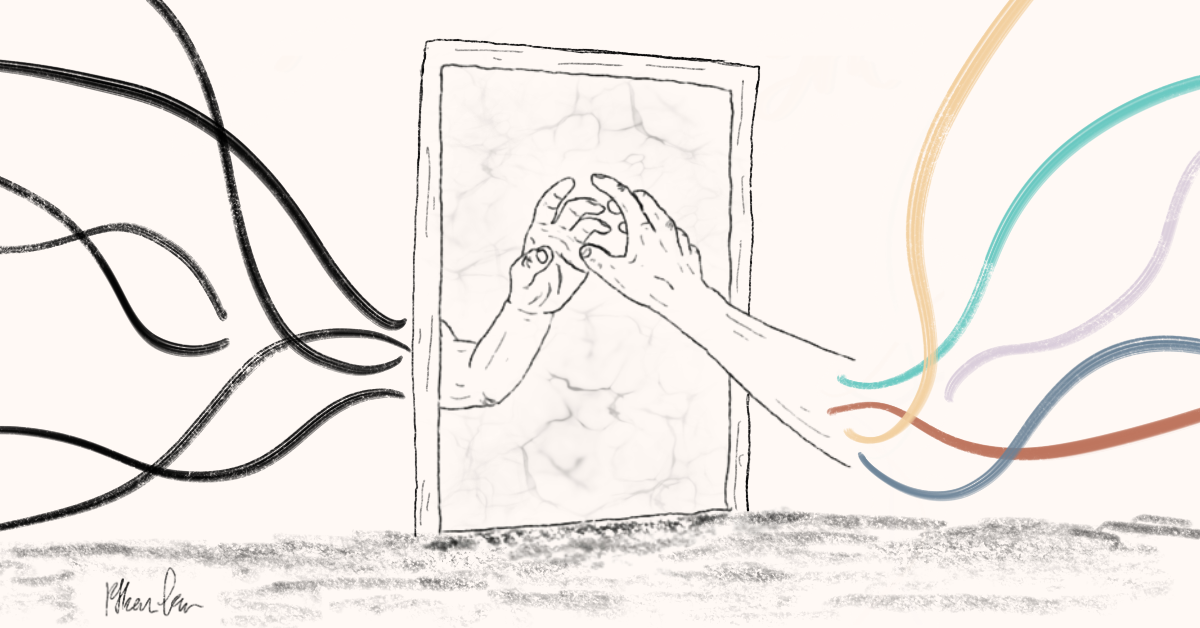By Ying Ying //
“Why couldn’t you control your mental illness?” This question, thrown at me as I finished my sharing, caught me by surprise. I regularly volunteer to talk about my journey with schizophrenia in online classes conducted by Caregivers Alliance. However, this was the first time my candid account of my deepest struggles seemed to be met with blame rather than empathy.
The question had been raised by one of the attending caregivers – let’s call him Mr. Peter – and it carried a weighty insinuation. Was he suggesting it’s my fault that I couldn’t rein in my mental faculties during an acute episode? Did he think I had a choice and simply chose not to?
After the initial shock and annoyance, a tide of compassion washed out my anger. In that moment, I confronted my own history of misconceptions. I recognised the times I, too, had placed blame where it didn’t belong.
Throughout my growing years, I approached life much like a scientist, meticulously controlling variables to derive interpretable results. I relished having a sense of control over my time, my actions, and the trajectory of my life.
The emergence of schizophrenia symptoms at the age of 25 was a seismic shift that shook me at the core of my being. Suddenly, I no longer knew who I was, what I was doing, or where I was headed.
My worst memory of psychosis was when my family brought me to the emergency room in the Institute of Mental Health, desperately seeking help. I could not engage with the on-call psychiatrist, my mind convinced she was a judge who was going to condemn me to hell.
In the year following my first encounter with psychosis, I carried a tremendous weight of guilt and shame about my condition. This weight only grew heavier as I saw my inability to master my own mind as a personal failing.
With the clarity of hindsight, I came to recognise the shame I carried as a product of self-stigma. I had internalised prevailing perceptions towards people with mental illnesses – weak, unstable, even dangerous – and turned those judgments inwards and onto myself. That constant state of self-condemnation left me languishing in emotional, mental, and spiritual bankruptcy.
A pivotal point in my recovery journey was when I finally grasped a fundamental truth: while I had no choice in having a mental illness, I could choose my response to it.
Schizophrenia wasn’t a choice I made. What I did choose was to gird my loins and scale my mountain. While I wish I could say that it was a delightful climb, the truth is that it was an arduous journey. There were days when I lost my way, times when I felt like I was barely hanging in there, and moments when I wanted to give up.
However, the newfound understanding that I could choose my response to my condition transformed my upward climb in ways I couldn’t imagine. It lightened my load considerably. No longer did I carry the weight of self-condemnation for my difficulties. Instead, I learnt to celebrate my small successes on a regular basis, a practice I continue today. Instead of listening to my inner critic, I would ask myself, “If my best friend were feeling the way I do, how would I respond?” In acknowledging my vulnerability, I discovered and embraced the quiet strength within me.
After 30 seconds of silence on the Zoom call, I smiled at Mr. Peter. I shared with him that there was a time when I believed that I had a choice over my illness. However, after living with schizophrenia for nearly a decade, I can say with certainty that no one willingly surrenders their mental faculties. The true choice lies not in the onset of the illness, but in how we face it. I chose to wage the right battle, and it’s made all the difference for me. I not only became a better friend to myself but also to others, because it’s true that loved people, love people. And in the same vein, hurting people, hurt people.
Perhaps it is when we embrace the parts of ourselves that we are most ashamed of that we truly begin to come alive.
Ying Ying is like an open book. And what many people don’t realise is that she is a book of many chapters. She hopes that by sharing one chapter of her life at a time, others can have an alternate view on what recovery from mental illness can look like.
Read more of our Tapestry Stories here.
Illustration by Ethan.

